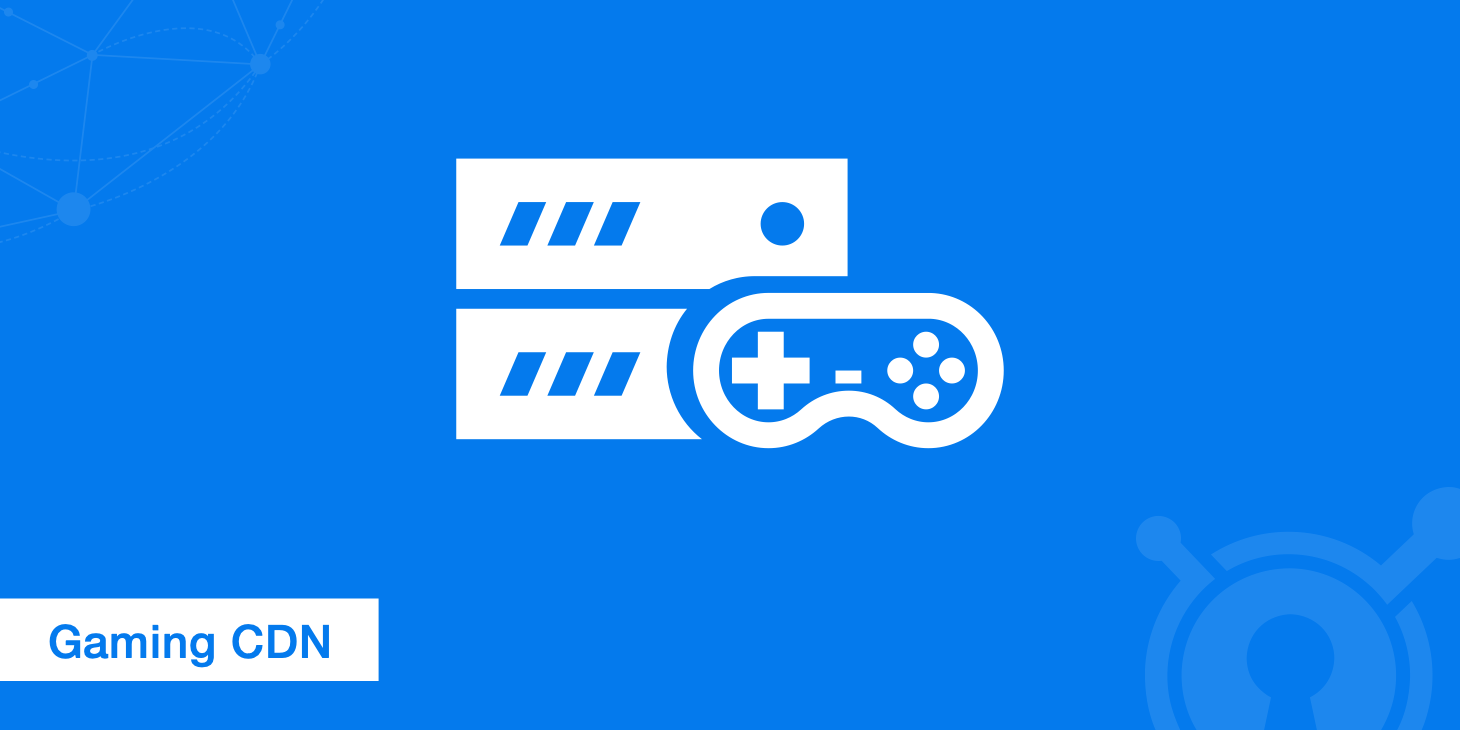CDN for Gaming: Revolutionizing Online Multiplayer Experiences

In the realm of online gaming, latency and reliability are paramount to ensuring an immersive and seamless experience for players. Content Delivery Networks (CDNs) have emerged as a game-changer in this arena, revolutionizing the way multiplayer games are delivered and consumed.

Benefits of CDN for Gaming

- Reduced Latency: CDNs strategically distribute content across multiple servers, reducing the distance between players and the game servers. This results in shorter latency, minimizing delays and enhancing the overall responsiveness of the game.
- Improved Reliability: CDNs employ redundant servers and load balancing techniques to minimize downtime and ensure consistent performance. By distributing the load across multiple servers, CDNs can handle spikes in traffic without compromising stability.
- Enhanced Scalability: CDNs can effortlessly scale up or down based on demand, accommodating fluctuations in player traffic. This ensures that players can enjoy a smooth and uninterrupted experience even during peak hours.
- Reduced Server Load: By caching and delivering game content from edge servers, CDNs offload significant load from game servers. This frees up resources for gameplay, resulting in better performance and stability.
- Global Reach: CDNs boast a global presence, enabling game publishers to reach players worldwide with minimal latency and lag. This unlocks new markets and expands the potential player base.
How CDN Improves Multiplayer Gaming
- Seamless Matchmaking: With reduced latency and improved reliability, CDNs enable faster and more efficient matchmaking algorithms. Players can find and connect with opponents with similar ping times, resulting in balanced and enjoyable matches.
- Responsive Gameplay: The low latency provided by CDNs translates into highly responsive gameplay. Players experience real-time updates, sharp controls, and fluid animations, enhancing their overall gaming experience.
- Reduced Packet Loss: By optimizing network traffic and reducing latency, CDNs minimize packet loss. This ensures that critical game data, such as player movements and attacks, is delivered reliably, preventing frustrating glitches and disruptions.
- Voice Communication Enhancements: CDNs also improve voice communication in multiplayer games. Reduced latency allows players to converse with minimal delays, ensuring clear and effective communication during matches.
- Competitive Advantage: In competitive multiplayer games, every millisecond counts. CDNs provide the edge that players need to react quickly and secure victories, empowering them to reach their full potential.
Choosing the Right CDN for Gaming
When selecting a CDN for gaming, it’s crucial to consider:
- Server Locations: Choose a CDN with servers distributed in close proximity to your player base to minimize latency.
- Network Performance: Evaluate the CDN’s network performance using metrics such as latency, jitter, and packet loss to ensure consistent and reliable delivery.
- Security Features: Opt for a CDN that offers robust security measures to protect player data and prevent DDoS attacks.
- Scalability: Ensure the CDN can handle fluctuations in player traffic to maintain a seamless experience.
- Cost and Support: Consider the CDN’s pricing model and customer support to ensure it aligns with your budget and needs.
Conclusion
CDNs have transformed the landscape of online multiplayer gaming. By reducing latency, enhancing reliability, and improving scalability, CDNs empower game publishers to deliver immersive and engaging gaming experiences that captivate players worldwide. As the gaming industry continues to evolve, CDNs will continue to play a pivotal role in shaping the future of multiplayer gaming.[Cdn For Gaming: Enhancing Online Multiplayer Experiences]
Executive Summary
The gaming industry is constantly evolving, and with the rise of online multiplayer gaming, the need for a reliable and high-performance content delivery network (CDN) has become more important than ever. A CDN can help to improve the online multiplayer experience by reducing latency, minimizing packet loss, and providing a more consistent and reliable connection.
Introduction
In online multiplayer gaming, every millisecond counts. Latency, packet loss, and jitter can all have a significant impact on the gaming experience, making it difficult to play smoothly and competitively. A CDN can help to mitigate these issues by providing a dedicated network of servers that are strategically located around the world. This allows gamers to connect to the server that is closest to them, which reduces latency and packet loss.
FAQs
1. What is a CDN?
A CDN is a network of servers that are distributed across the globe. When a user requests content from a website or online game, the CDN will deliver the content from the server that is closest to the user. This reduces latency and improves the overall user experience.
2. How does a CDN help with online multiplayer gaming?
A CDN can help with online multiplayer gaming by reducing latency, minimizing packet loss, and providing a more consistent and reliable connection. By connecting gamers to the server that is closest to them, a CDN can reduce latency and packet loss. This makes for a smoother and more enjoyable gaming experience.
3. What are the benefits of using a CDN for online multiplayer gaming?
There are many benefits to using a CDN for online multiplayer gaming, including:
- Reduced latency
- Minimized packet loss
- More consistent and reliable connection
- Improved overall gaming experience
Top 5 Subtopics
1. Latency**
Latency is the time it takes for data to travel from one point to another. In online multiplayer gaming, latency can have a significant impact on the gameplay experience. High latency can cause lag, which can make it difficult to play smoothly and competitively.
Important Pieces
- Ping: Ping is a measure of latency. It is the time it takes for a data packet to travel from your computer to a server and back.
- Low latency: Low latency is essential for a good online multiplayer gaming experience. The lower the latency, the less lag you will experience.
- High latency: High latency can make online multiplayer gaming difficult and frustrating.
- Packet loss: Packet loss is another common issue that can affect online multiplayer gaming. Packet loss occurs when some of the data packets that are sent between your computer and the server are lost.
- Jitter: Jitter is a measure of the variation in latency. High jitter can make it difficult to play online multiplayer games smoothly.
2. Packet Loss**
Packet loss is another common issue that can affect online multiplayer gaming. Packet loss occurs when some of the data packets that are sent between your computer and the server are lost. This can cause the game to freeze or lag, and can make it difficult to play smoothly and competitively.
Important Pieces
- Causes of packet loss: Packet loss can be caused by a variety of factors, including network congestion, hardware problems, and software bugs.
- Effects of packet loss: Packet loss can have a significant impact on the online multiplayer gaming experience. It can cause the game to freeze or lag, and can make it difficult to play smoothly and competitively.
- Minimizing packet loss: There are a number of things you can do to minimize packet loss, including using a wired Ethernet connection, avoiding using Wi-Fi, and closing any unnecessary programs that are running on your computer.
3. Jitter**
Jitter is a measure of the variation in latency. High jitter can make it difficult to play online multiplayer games smoothly. This is because the game engine will have to constantly adjust to the changing latency, which can cause the game to stutter or lag.
Important Pieces
- Causes of jitter: Jitter can be caused by a variety of factors, including network congestion, hardware problems, and software bugs.
- Effects of jitter: Jitter can have a significant impact on the online multiplayer gaming experience. It can make it difficult to play smoothly and competitively, and can also cause the game to stutter or lag.
- Minimizing jitter: There are a number of things you can do to minimize jitter, including using a wired Ethernet connection, avoiding using Wi-Fi, and closing any unnecessary programs that are running on your computer.
4. Network Congestion**
Network congestion occurs when there is too much traffic on a network. This can cause latency, packet loss, and jitter. Network congestion can be caused by a variety of factors, including:
- Too many users: If too many users are trying to access a network at the same time, it can cause network congestion.
- Slow hardware: If the hardware on the network is not fast enough to handle the traffic, it can cause network congestion.
- Poor network design: If the network is not designed properly, it can cause network congestion.
5. Hardware Problems**
Hardware problems can also cause latency, packet loss, and jitter. Hardware problems can include:
- Faulty network cables: Faulty network cables can cause packet loss and jitter.
- Bad network cards: Bad network cards can cause latency, packet loss, and jitter.
- Old or outdated hardware: Old or outdated hardware may not be able to handle the demands of online multiplayer gaming.
Conclusion
A CDN can be a valuable tool for improving the online multiplayer gaming experience. By reducing latency, minimizing packet loss, and providing a more consistent and reliable connection, a CDN can help gamers to play smoothly and competitively.
Keyword Tags
- CDN
- Gaming
- Online multiplayer gaming
- Latency
- Packet loss
- Jitter
